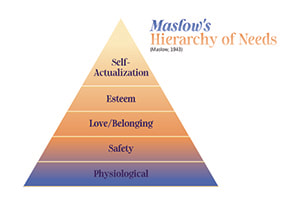|
By Catherine Wilson, LPC, ACS of LifePaths Counseling Center in Littleton, Colorado  A question I have heard many times as a counselor is: “Is this abuse?” It is a common one that people ask themselves when they are trying to understand what is going on in a relationship that just feels wrong. It is also common for people to ask family and friends. A short answer to the question might be, “yes it probably is,” if the client is asking that question. However, it also isn’t that simple. There are many ways that people describe it when something is unhealthy in a relationship, and also many ways for others to interpret it.
0 Comments
 Spirituality is a source of comfort, guidance, meaning and purpose for many people. However, for many survivors of domestic violence, misguided religious messages can be used to justify abuse and coerce victims to submit and accept maltreatment, coercion, cruelty, neglect and/or violence. Spiritual abuse is an insidious form of trauma and psychological manipulation that uses religious doctrine to control community members and keep them subjugated. When spiritually toxic environments intersect with domestic violence, often scripture is used to embolden abusers. Often times, scripture that alludes to women being required by God to be submissive or “fulfill their wifely duties” is used to force victims – women especially – to submit to their abuser. Worse yet, many survivors who report their abuse to practicing family or community members, are often turned away and told to “pray, submit, and be a good wife.” This is a powerful form of victim blaming and makes leaving a domestically violent relationship that much more heartbreaking. In this interview, Barbara Sheehan-Zeidler, MA, LPC, of Creative & Caring Counseling, and Sybil Cummin, MA, LPC, of Arvada Therapy Solutions and creator of Beyond Power and Control, discuss the ways in which Eye Movement Desensitization and Reprocessing (EMDR) can benefit victims and survivors of Domestic Violence. By Sybil Cummin, MA, LPC, ACS  You have been working with a client for several months and feel completely frustrated and stuck. What the heck is going on? I’m not a bad therapist, am I? Nope, this client must be resistant to real change, right? Hmmm. As you are doubting yourself and your client’s motivations, you might be missing something much more basic. Something we learned in the early stages of our training to become mental health professionals. Maslow’s Hierarchy of Needs was developed in 1943 by Abraham Maslow and represents a shift in thinking about people’s motivation and psychology from a more “what is wrong with you, why can’t you reach your potential” to a more “what do you need to reach your potential.” His model can be seen as a pyramid (see the image below) where the most basic needs are seen in the bottom of the pyramid and the more complex or growth needs are pictured at the top. So, basically, we need to have our physiological needs met before we work our way up to improving our self-esteem and self-actualization (realizing our full individual potential). Do you remember this from one of those developmental classes or classes on theory? By Sybil Cummin, MA, LPC, ACS  Does the term “Assessment” make you want to put your head down and take a snooze? Does it seem like assessment is something we HAVE to do just to CYA? I’m wondering if we can shift that perspective to provide our clients with the best care. As clinicians, assessment is one of the most important jobs we do for our clients. During the assessment process, we gather data, which then determines the level and severity of our clients’ presenting issues and guides our treatment planning and process. Remember that assessment is a dynamic and ongoing process. A process that does not end after your initial intake and creation of a treatment plan. This is especially true for those who are living in or are surviving domestic violence. In this interview, Christine Garcia, MA, LPC, of the Children's Wellness Center of Colorado and Sybil Cummin, MA, LPC, of Arvada Therapy Solutions and creator of Beyond Power and Control, continue to debunk the common myths and misconceptions surrounding victims and survivors of domestic violence (DV) -- mainly, the idea that these individuals are "weak" and unable to take care of themselves. In fact, quite the opposite is true, and it is one of the roles of the therapist to assist clients in acknowledging this strength and empowering them in their recovery. Note: Please excuse minor technical difficulties; missing video footage has been replaced with photographs. By Sybil Cummin, MA, LPC, ACS By Abby Esquivel, LCSW, therapist and owner of Be and Belong Counseling LLC.  As a child therapist specializing in trauma, I have heard the implications of domestic violence often dismissed from caseworkers, caregivers, and agencies alike in a multitude of settings: “It was just DV.” “The child didn’t even witness the abuse.” “S/he was just a baby when removed from the home.” I can see where people are coming from. It could seem that the child who has “only” witnessed or experienced living in a home with domestic violence is surely not as traumatized and affected as a child who was personally abused. The truth is, we now have research that confirms the opposite. The most significant psychological outcomes down the road are associated with children who grow up in homes with domestic violence (Grant, 2019). This means that to experience physical abuse is actually BETTER, on a neurological level, for the child to make sense of and heal from than growing up in a home with intimate partner violence. Deep breath. Let’s back up and consider child development. In a healthy child-parent relationship, a child would have a need and the need would be met by the parent. This pattern occurs a million times over and over, and it’s what creates secure attachment. Children feel safe, know their voices matter, and their physical and emotional needs are cared for. When a child is reaching out for help and their caregiver is hurt or is the source of their stress, then the child is left without supports. This causes severe neurological disorganization and would be considered an attachment rupture, or attachment injury. By Sybil Cummin, MA, LPC, ACS By Megan Burch, LSW, Therapist/Owner of Joy Creek Counseling, LLC  Welcome to Part II of Seeing Survivors Through a Lens of Compassion! We are looking at the behaviors of survivors of domestic violence in order to shift to a place of understanding and compassion. In Part I, we deconstructed some common lenses that we might be currently using with our survivor clients. If you haven’t read the first piece, it would be helpful to start there. Understanding behaviors is the first step to shifting into a place of compassion. After exploring the depth of survivor decision making and context, let’s first take a deep breath and pause. I think that it’s really important to sit in this pause. Part I may have been difficult to read as we may have found ourselves making some of those statements of: Why doesn’t my client just leave? My client lies to me. My client is minimizing the abuse. We may have made those statements to a client, to another helping professional, to ourselves. Let’s bring in some self-compassion for ourselves. You are on this website because you want to improve your practice with domestic violence. We can’t improve our practice until we take a look at our current practice. We are all learning together. |
AuthorSybil Cummin, MA, LPC, ACS Archives
February 2021
Categories
All
|
